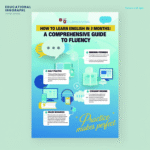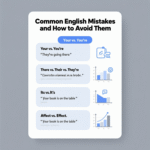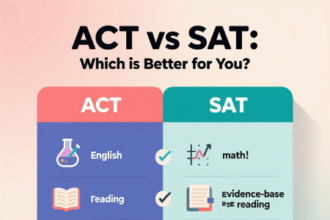The banking sector in India offers a stable, lucrative, and rewarding career path for millions of aspirants. With top bank exams in India such as IBPS PO, SBI PO, RBI Grade B, and others, candidates have a plethora of opportunities to secure prestigious positions like Probationary Officers (PO), Clerks, and Specialist Officers (SO). However, cracking these competitive exams requires meticulous preparation, strategic planning, and a thorough understanding of the exam structure. This comprehensive guide provides an in-depth exploration of the top bank exams in India, their eligibility criteria, exam patterns, syllabi, and proven strategies to excel in them. Whether you’re a fresh graduate or a working professional, this article equips you with actionable insights to ace these exams and embark on a successful banking career.
- Understanding the Landscape of Bank Exams in India
- Key Bank Exams in India for 2025
- 1. IBPS PO (Probationary Officer)
- 2. SBI PO (State Bank of India Probationary Officer)
- 3. IBPS Clerk
- 4. SBI Clerk
- 5. IBPS RRB (Regional Rural Banks)
- 6. RBI Grade B
- 7. RBI Assistant
- 8. IBPS SO (Specialist Officer)
- 9. NABARD Grade A
- 10. IPPB Exam
- Comprehensive Strategies to Crack Bank Exams
- 1. Understand the Syllabus and Exam Pattern
- 2. Create a Structured Study Plan
- 3. Practice with Mock Tests and Previous Years’ Papers
- 4. Master Time Management
- 5. Strengthen General Awareness and Banking Knowledge
- 6. Enhance English Language Skills
- 7. Focus on Quantitative Aptitude and Reasoning
- 8. Prepare for Descriptive Tests
- 9. Interview Preparation
- 10. Stay Motivated and Consistent
- Recommended Resources for Bank Exam Preparation
- Common Challenges and How to Overcome Them
- Suggestions and Recommendations
- Frequently Asked Questions (FAQs)
Understanding the Landscape of Bank Exams in India
India’s banking sector is a cornerstone of the economy, with public sector banks (PSBs), private banks, and regulatory bodies like the Reserve Bank of India (RBI) conducting recruitment exams annually. The top bank exams in India are highly competitive due to their promise of job security, attractive salaries, and growth opportunities. These exams, conducted by organizations like the Institute of Banking Personnel Selection (IBPS), State Bank of India (SBI), and RBI, cater to various roles, including Probationary Officers, Clerks, Specialist Officers, and Assistants. Each exam has unique eligibility criteria, exam patterns, and syllabi, making it essential for candidates to understand the nuances of each to tailor their preparation effectively.
The competitive nature of these exams stems from the large number of applicants—often in the lakhs—competing for a limited number of vacancies. For instance, the SBI PO exam in 2016 saw over 17 lakh applicants vying for just 2,004 seats, highlighting the intense competition. To succeed, candidates must adopt a structured approach, focusing on syllabus mastery, time management, and consistent practice. Below, we delve into the top bank exams in India, their requirements, and step-by-step strategies to crack them.
Key Bank Exams in India for 2025
The top bank exams in India for 2025 include a mix of national and regional-level exams conducted by prominent banking institutions. These exams are designed to recruit candidates for various roles, from clerical positions to managerial posts. Below is a detailed breakdown of the most prominent exams, their structure, and what candidates can expect.
1. IBPS PO (Probationary Officer)
The IBPS PO exam is one of the most sought-after banking exams in India, conducted by the Institute of Banking Personnel Selection to recruit Probationary Officers for public sector banks. This exam is a gateway to managerial roles in banks like Punjab National Bank, Bank of Baroda, and Canara Bank, excluding SBI.
Eligibility Criteria
- Educational Qualification: A bachelor’s degree in any discipline from a recognized university.
- Age Limit: 20–30 years, with relaxations for reserved categories (e.g., 5 years for SC/ST, 3 years for OBC).
- Nationality: Indian citizens or subjects of Nepal/Bhutan with specific conditions.
Exam Pattern
The IBPS PO exam is conducted in three phases:
- Preliminary Exam: A 100-mark, 1-hour online test with three sections—English Language (30 marks), Quantitative Aptitude (35 marks), and Reasoning Ability (35 marks). Negative marking of 0.25 marks applies.
- Main Exam: A 225-mark test (200 marks objective + 25 marks descriptive) spanning 3 hours 30 minutes. It includes Reasoning & Computer Aptitude (45 marks), General/Economy/Banking Awareness (40 marks), English Language (35 marks), Data Analysis & Interpretation (35 marks), and a Descriptive Test (Letter Writing & Essay, 25 marks).
- Interview: A 100-mark personal interview assessing communication skills, banking knowledge, and personality traits.
Syllabus Overview
- English Language: Reading comprehension, cloze test, error detection, sentence correction, vocabulary.
- Quantitative Aptitude: Data interpretation, number series, simplification, profit and loss, time and work, probability.
- Reasoning Ability: Puzzles, seating arrangements, syllogisms, coding-decoding, blood relations.
- General Awareness: Current affairs, banking awareness, economic policies, static GK.
- Computer Aptitude: Basics of MS Office, networking, cybersecurity, computer fundamentals.
Preparation Tips
- Understand the Syllabus: Thoroughly analyze the syllabus to prioritize high-weightage topics like data interpretation and puzzles.
- Practice Mock Tests: Attempt at least 20–30 full-length mock tests to simulate exam conditions and improve speed and accuracy.
- Focus on Weak Areas: Identify weaknesses through mock test analysis and dedicate extra time to improve them.
- Stay Updated: Read newspapers like The Hindu or The Indian Express for current affairs and banking awareness.
- Time Management: Allocate specific time slots for each section during practice to enhance efficiency.
2. SBI PO (State Bank of India Probationary Officer)
The SBI PO exam is among the most prestigious and challenging top bank exams in India, conducted by the State Bank of India to recruit Probationary Officers. Known for its high difficulty level, this exam offers lucrative career prospects with a starting salary of approximately INR 27,620 (with four advance increments).
Eligibility Criteria
- Educational Qualification: Graduation in any discipline from a recognized university.
- Age Limit: 21–30 years, with relaxations for reserved categories.
- Nationality: Indian citizens or eligible candidates from Nepal/Bhutan.
Exam Pattern
The SBI PO exam comprises three stages:
- Preliminary Exam: A 100-mark, 1-hour test with English Language (30 marks), Quantitative Aptitude (35 marks), and Reasoning Ability (35 marks). Negative marking applies.
- Main Exam: A 250-mark test (200 marks objective + 50 marks descriptive) with Reasoning & Computer Aptitude (50 marks), Data Analysis & Interpretation (50 marks), General/Economy/Banking Awareness (50 marks), English Language (50 marks), and a Descriptive Test (Letter Writing & Essay).
- Group Exercises & Interview: A 50-mark phase combining group discussions (20 marks) and personal interviews (30 marks).
Syllabus Overview
- English Language: Reading comprehension, para jumbles, error spotting, vocabulary, sentence improvement.
- Quantitative Aptitude: Data interpretation, quadratic equations, number series, profit and loss, time and distance.
- Reasoning Ability: Puzzles, seating arrangements, logical reasoning, input-output, data sufficiency.
- General Awareness: Banking and financial awareness, current affairs, static GK.
- Descriptive Test: Essay writing on current issues, formal letter writing.
Preparation Tips
- Master Data Interpretation: Focus on complex DI sets, as they carry significant weight in the Main exam.
- Enhance Descriptive Skills: Practice essay and letter writing to improve articulation and time management.
- Simulate Exam Conditions: Take timed mock tests to adapt to the exam’s high-pressure environment.
- Banking Knowledge: Study SBI-specific banking products, policies, and recent financial developments.
- Interview Preparation: Practice mock interviews to build confidence and refine communication skills.
3. IBPS Clerk
The IBPS Clerk exam recruits clerical staff for public sector banks, focusing on customer service and day-to-day operations. It is considered one of the easier top bank exams in India due to its straightforward syllabus and moderate difficulty level.
Eligibility Criteria
- Educational Qualification: Graduation in any discipline from a recognized university.
- Age Limit: 20–28 years, with relaxations for reserved categories.
- Nationality: Indian citizens or eligible candidates from Nepal/Bhutan.
Exam Pattern
- Preliminary Exam: A 100-mark, 1-hour test with English Language (30 marks), Numerical Ability (35 marks), and Reasoning Ability (35 marks).
- Main Exam: A 200-mark, 160-minute test with General/Financial Awareness (50 marks), General English (40 marks), Reasoning Ability & Computer Aptitude (50 marks), and Quantitative Aptitude (50 marks).
Syllabus Overview
- English Language: Reading comprehension, fill in the blanks, error detection, sentence correction.
- Numerical Ability: Simplification, number series, data interpretation, arithmetic problems.
- Reasoning Ability: Puzzles, seating arrangements, coding-decoding, syllogisms.
- General Awareness: Banking awareness, current affairs, static GK.
- Computer Aptitude: Basics of computers, internet, MS Office, networking.
Preparation Tips
- Build Speed and Accuracy: Clerical exams emphasize quick problem-solving; practice shortcut techniques for numerical and reasoning questions.
- Regular Mock Tests: Attempt 15–20 mock tests to familiarize yourself with the exam format.
- Focus on Basics: Strengthen fundamental concepts in arithmetic and reasoning.
- Current Affairs: Follow monthly current affairs magazines or apps like Testbook for updates.
- Computer Knowledge: Brush up on basic computer skills, as this section is often scoring.
4. SBI Clerk
The SBI Clerk exam recruits Junior Associates (Customer Support & Sales) for the State Bank of India. It is similar to the IBPS Clerk exam in terms of difficulty but focuses on SBI-specific banking operations.
Eligibility Criteria
- Educational Qualification: Graduation in any discipline.
- Age Limit: 20–28 years, with relaxations for reserved categories.
- Nationality: Indian citizens or eligible candidates from Nepal/Bhutan.
Exam Pattern
- Preliminary Exam: A 100-mark, 1-hour test with English Language (30 marks), Numerical Ability (35 marks), and Reasoning Ability (35 marks).
- Main Exam: A 200-mark, 2-hour 40-minute test with General/Financial Awareness (50 marks), General English (40 marks), Quantitative Aptitude (50 marks), and Reasoning Ability & Computer Aptitude (50 marks).
- Language Proficiency Test (LPT): Candidates must demonstrate fluency in the regional language of the state applied for.
Syllabus Overview
- English Language: Reading comprehension, cloze test, sentence correction, vocabulary.
- Quantitative Aptitude: Data interpretation, simplification, arithmetic problems, number series.
- Reasoning Ability: Puzzles, seating arrangements, logical reasoning, coding-decoding.
- General Awareness: Banking and financial awareness, current affairs, static GK.
- Computer Aptitude: Basics of computers, internet, MS Office.
Preparation Tips
- Practice Regional Language: Prepare for the LPT by practicing reading, writing, and speaking the regional language.
- Focus on Speed: Solve at least 100 questions daily to improve speed and accuracy.
- Mock Tests: Take SBI Clerk-specific mock tests to understand question patterns.
- Banking Awareness: Study SBI’s banking products, services, and recent initiatives.
- Time Management: Allocate time wisely during the exam to attempt maximum questions.
5. IBPS RRB (Regional Rural Banks)
The IBPS RRB exam recruits Officers (Scale I, II, III) and Office Assistants for regional rural banks, catering to rural banking needs. It is considered one of the easier top bank exams in India due to its simpler syllabus and lower competition in some regions.
Eligibility Criteria
- Educational Qualification: Graduation for Officer Scale I and Office Assistant; specialized degrees for Scale II and III.
- Age Limit: 18–40 years (varies by post), with relaxations for reserved categories.
- Nationality: Indian citizens or eligible candidates from Nepal/Bhutan.
Exam Pattern
- Preliminary Exam (Officer Scale I & Office Assistant): A 80-mark, 45-minute test with Reasoning (40 marks) and Quantitative Aptitude/Numerical Ability (40 marks).
- Main Exam: Varies by post, with sections like Reasoning, Quantitative Aptitude, General Awareness, English/Hindi Language, and Computer Knowledge.
- Interview (Officer Scale I, II, III): A personal interview to assess suitability for banking roles.
Syllabus Overview
- Reasoning: Puzzles, seating arrangements, syllogisms, coding-decoding.
- Quantitative Aptitude: Data interpretation, arithmetic, number series, simplification.
- General Awareness: Banking awareness, current affairs, rural economy.
- English/Hindi Language: Reading comprehension, error detection, cloze test.
- Computer Knowledge: Basics of computers, MS Office, networking.
Preparation Tips
- Focus on Rural Banking: Study rural banking schemes and government initiatives like PMJDY.
- Language Choice: Choose between English and Hindi based on proficiency.
- Mock Tests: Practice RRB-specific mock tests to understand question types.
- Time Management: Allocate time for high-scoring sections like reasoning and numerical ability.
- Current Affairs: Stay updated on rural development and banking news.
6. RBI Grade B
The RBI Grade B exam is the most prestigious among the top bank exams in India, recruiting officers for the Reserve Bank of India. It is highly competitive and tests advanced knowledge of economics, finance, and management.
Eligibility Criteria
- Educational Qualification: Graduation with 60% marks (50% for SC/ST/PwD) or a postgraduate degree.
- Age Limit: 21–30 years, with relaxations for reserved categories.
- Nationality: Indian citizens or eligible candidates from Nepal/Bhutan.
Exam Pattern
- Phase I (Preliminary): A 200-mark, 2-hour test with General Awareness (80 marks), English Language (30 marks), Quantitative Aptitude (30 marks), and Reasoning (60 marks).
- Phase II (Main): A 300-mark test with Economic & Social Issues (100 marks), English (Writing Skills, 100 marks), and Finance & Management (100 marks).
- Interview: A 75-mark personal interview assessing banking knowledge and interpersonal skills.
Syllabus Overview
- General Awareness: Banking and financial awareness, current affairs, economic policies, static GK.
- English Language: Essay writing, precis writing, comprehension, vocabulary.
- Quantitative Aptitude: Data interpretation, number series, arithmetic.
- Reasoning: Puzzles, seating arrangements, logical reasoning.
- Economic & Social Issues: Growth and development, social structure, globalization.
- Finance & Management: Financial systems, risk management, leadership, organizational behavior.
Preparation Tips
- Deep Dive into Economics: Study economic concepts, RBI policies, and financial markets in detail.
- Practice Descriptive Writing: Write essays and precis regularly to improve articulation.
- Mock Tests: Attempt Phase I and II-specific mock tests to gauge readiness.
- Current Affairs: Follow RBI reports, economic surveys, and financial newspapers.
- Interview Preparation: Prepare for questions on RBI’s role, monetary policy, and personal achievements.
7. RBI Assistant
The RBI Assistant exam recruits clerical staff for the Reserve Bank of India, offering a stable and prestigious career path. It is moderately difficult and highly rewarding.
Eligibility Criteria
- Educational Qualification: Graduation with 50% marks (pass class for SC/ST/PwD).
- Age Limit: 20–28 years, with relaxations for reserved categories.
- Nationality: Indian citizens or eligible candidates from Nepal/Bhutan.
Exam Pattern
- Preliminary Exam: A 100-mark, 1-hour test with English Language (30 marks), Numerical Ability (35 marks), and Reasoning Ability (35 marks).
- Main Exam: A 200-mark, 135-minute test with Reasoning (40 marks), English Language (40 marks), Numerical Ability (40 marks), General Awareness (40 marks), and Computer Knowledge (40 marks).
- Language Proficiency Test (LPT): Tests fluency in the regional language of the applied state.
Syllabus Overview
- English Language: Reading comprehension, cloze test, error detection.
- Numerical Ability: Simplification, data interpretation, arithmetic.
- Reasoning Ability: Puzzles, seating arrangements, coding-decoding.
- General Awareness: Banking awareness, current affairs, static GK.
- Computer Knowledge: MS Office, internet, computer fundamentals.
Preparation Tips
- Focus on General Awareness: Study RBI-specific policies and banking awareness.
- Practice Numerical Ability: Solve arithmetic and DI questions daily.
- Mock Tests: Take 15–20 mock tests to build speed and accuracy.
- Regional Language: Prepare for the LPT by practicing the regional language.
- Time Management: Allocate time efficiently across sections during practice.
8. IBPS SO (Specialist Officer)
The IBPS SO exam recruits Specialist Officers for roles like IT Officer, HR Officer, Marketing Officer, and Law Officer in public sector banks. It requires specialized knowledge in addition to general banking skills.
Eligibility Criteria
- Educational Qualification: Specialized degrees (e.g., B.Tech for IT Officer, MBA for Marketing Officer).
- Age Limit: 20–30 years, with relaxations for reserved categories.
- Nationality: Indian citizens or eligible candidates from Nepal/Bhutan.
Exam Pattern
- Preliminary Exam: A 150-mark, 2-hour test with English Language (50 marks), Reasoning (50 marks), and Quantitative Aptitude/General Awareness (50 marks, depending on the post).
- Main Exam: A 60-mark test focusing on professional knowledge relevant to the role.
- Interview: A personal interview to assess technical and interpersonal skills.
Syllabus Overview
- English Language: Reading comprehension, error detection, vocabulary.
- Reasoning: Puzzles, seating arrangements, logical reasoning.
- Quantitative Aptitude: Data interpretation, arithmetic, number series.
- General Awareness: Banking awareness, current affairs (for some posts).
- Professional Knowledge: Role-specific topics (e.g., IT, HR, marketing, law).
Preparation Tips
- Specialized Knowledge: Deepen expertise in your professional field (e.g., IT concepts for IT Officer).
- Mock Tests: Practice SO-specific mock tests to master professional knowledge questions.
- General Sections: Strengthen reasoning and English through daily practice.
- Interview Preparation: Prepare for technical questions related to your specialization.
- Stay Updated: Follow industry trends relevant to your role.
9. NABARD Grade A
The NABARD Grade A exam recruits Assistant Managers for the National Bank for Agriculture and Rural Development, focusing on rural banking and development.
Eligibility Criteria
- Educational Qualification: Graduation with 60% marks (50% for SC/ST) in relevant disciplines (e.g., agriculture, economics).
- Age Limit: 21–30 years, with relaxations for reserved categories.
- Nationality: Indian citizens or eligible candidates from Nepal/Bhutan.
Exam Pattern
- Preliminary Exam: A 200-mark, 2-hour test with Reasoning, English, Quantitative Aptitude, General Awareness, Computer Knowledge, Economic & Social Issues, and Agriculture & Rural Development.
- Main Exam: Two papers—Paper I (Descriptive English, 100 marks) and Paper II (Objective and Descriptive, 100 marks, focusing on professional knowledge).
- Interview: A 50-mark personal interview.
Syllabus Overview
- English Language: Essay writing, precis, comprehension.
- Quantitative Aptitude: Data interpretation, arithmetic, number series.
- Reasoning: Puzzles, seating arrangements, logical reasoning.
- General Awareness: Current affairs, banking awareness, rural development.
- Agriculture & Rural Development: Agriculture policies, rural schemes, soil science.
- Economic & Social Issues: Economic policies, social structure, rural economy.
Preparation Tips
- Focus on Rural Development: Study NABARD schemes, agricultural policies, and rural economy.
- Descriptive Writing: Practice essays and precis on rural and economic topics.
- Mock Tests: Attempt NABARD-specific mock tests to understand question patterns.
- Current Affairs: Follow agricultural and rural development news.
- Interview Preparation: Prepare for questions on NABARD’s role and rural banking.
10. IPPB Exam
The IPPB Exam recruits officers for the India Post Payments Bank, focusing on banking services through post offices. It is less competitive but requires specific experience in some cases.
Eligibility Criteria
- Educational Qualification: Graduation; experience in government sectors for higher roles.
- Age Limit: Varies by post, typically 20–35 years.
- Nationality: Indian citizens.
Exam Pattern
- Preliminary Exam: A 100-mark, 1-hour test with English Language, Reasoning, and Quantitative Aptitude.
- Main Exam: Varies by post, including professional knowledge and general awareness.
- Interview: Assesses suitability for banking roles.
Syllabus Overview
- English Language: Reading comprehension, error detection, vocabulary.
- Quantitative Aptitude: Data interpretation, arithmetic, number series.
- Reasoning: Puzzles, seating arrangements, logical reasoning.
- General Awareness: Banking awareness, current affairs, postal banking.
Preparation Tips
- Focus on Postal Banking: Study IPPB’s services and operations.
- Mock Tests: Practice IPPB-specific mock tests.
- General Awareness: Stay updated on postal and banking news.
- Time Management: Practice solving questions within time limits.
- Interview Preparation: Prepare for questions on IPPB’s role and banking operations.
Comprehensive Strategies to Crack Bank Exams
Cracking the top bank exams in India requires a blend of hard work, smart strategies, and consistent effort. Below are detailed, actionable strategies to help candidates excel in these competitive exams.
1. Understand the Syllabus and Exam Pattern
A thorough understanding of the syllabus and exam pattern is the foundation of effective preparation. Each exam—whether IBPS PO, SBI Clerk, or RBI Grade B—has a unique structure and focus areas. For instance, RBI Grade B emphasizes economic and financial awareness, while IBPS Clerk focuses on speed and accuracy in clerical tasks. Candidates should:
- Download the official syllabus from the respective exam’s website (e.g., ibps.in, sbi.co.in).
- Analyze the weightage of each section to prioritize high-scoring topics.
- Study the exam pattern to understand the number of questions, marks, and time allocation.
2. Create a Structured Study Plan
A well-structured study plan is critical for covering the vast syllabus efficiently. Candidates should:
- Allocate Time Wisely: Dedicate 4–6 hours daily, with specific time slots for each section (e.g., 1 hour for Quantitative Aptitude, 1 hour for Reasoning).
- Prioritize Weak Areas: Identify weaknesses through mock tests and allocate extra time to improve them.
- Include Revision: Reserve 1–2 hours daily for revising previously covered topics.
- Balance Subjects: Ensure all sections (English, Quantitative Aptitude, Reasoning, General Awareness) are covered weekly.
Sample 6-Month Study Plan:
- Month 1–2: Focus on building concepts in Quantitative Aptitude, Reasoning, and English. Study basic formulas, grammar rules, and logical reasoning techniques.
- Month 3–4: Deepen knowledge in General Awareness and Computer Knowledge. Practice sectional tests and solve previous years’ papers.
- Month 5–6: Take full-length mock tests, analyze performance, and revise weak areas. Practice descriptive writing for exams like SBI PO and RBI Grade B.
3. Practice with Mock Tests and Previous Years’ Papers
Mock tests and previous years’ question papers are invaluable for understanding question patterns and improving performance. Candidates should:
- Attempt 20–30 full-length mock tests to simulate exam conditions.
- Analyze mistakes after each test to avoid repetition.
- Solve at least 5–10 previous years’ papers to identify recurring topics and question types.
- Use platforms like Testbook, Oliveboard, or Physics Wallah for quality mock tests and study materials.
4. Master Time Management
Time management is crucial in bank exams due to their time-bound nature. Candidates should:
- Practice solving questions within set time limits (e.g., 20 seconds per question in Prelims).
- Develop shortcuts for Quantitative Aptitude and Reasoning questions to save time.
- Prioritize high-scoring, less time-consuming questions during the exam.
- Use a stopwatch during practice to track speed.
5. Strengthen General Awareness and Banking Knowledge
General Awareness is a high-scoring section in most bank exams. Candidates should:
- Read newspapers like The Hindu, The Indian Express, or The Economic Times daily.
- Follow monthly current affairs magazines or apps like Testbook or Adda247.
- Study banking-specific topics like RBI policies, monetary policy, and financial instruments.
- Memorize static GK topics like important banks, headquarters, and government schemes.
6. Enhance English Language Skills
The English Language section tests comprehension, grammar, and vocabulary. Candidates should:
- Read editorials and books to improve reading comprehension and vocabulary.
- Practice 10–15 questions daily on error detection, cloze test, and sentence correction.
- Write essays and letters regularly for descriptive tests in exams like SBI PO and RBI Grade B.
- Use resources like Wren & Martin for grammar and Word Power Made Easy for vocabulary.
7. Focus on Quantitative Aptitude and Reasoning
Quantitative Aptitude and Reasoning are core sections in all bank exams. Candidates should:
- Master formulas for topics like profit and loss, time and work, and data interpretation.
- Practice complex puzzles and seating arrangements daily to improve logical thinking.
- Use shortcut techniques (e.g., Vedic Maths) to solve numerical problems quickly.
- Solve 50–100 questions daily to build speed and accuracy.
8. Prepare for Descriptive Tests
Exams like SBI PO, RBI Grade B, and NABARD Grade A include descriptive tests (essay and letter writing). Candidates should:
- Practice writing essays on current issues (e.g., digital banking, financial inclusion).
- Learn formal letter formats for banking-related scenarios.
- Write 2–3 essays and letters weekly to improve articulation and time management.
- Read sample essays on platforms like Oliveboard or Guidely for inspiration.
9. Interview Preparation
The interview stage is critical for exams like IBPS PO, SBI PO, and RBI Grade B. Candidates should:
- Prepare for common questions like “Why banking?”, “What is RBI’s role?”, and “Tell us about yourself.”
- Study banking terminology, financial markets, and recent economic developments.
- Practice mock interviews to build confidence and refine communication skills.
- Dress professionally and maintain positive body language during the interview.
10. Stay Motivated and Consistent
Bank exam preparation is a marathon, not a sprint. Candidates should:
- Set realistic goals and track progress weekly.
- Take short breaks to avoid burnout.
- Join study groups or online forums for motivation and peer learning.
- Stay positive and avoid distractions during preparation.
Recommended Resources for Bank Exam Preparation
To excel in the top bank exams in India, candidates should leverage high-quality resources. Below are some recommended tools and platforms:
- Books:
- Quantitative Aptitude for Competitive Examinations by R.S. Aggarwal
- A Modern Approach to Verbal & Non-Verbal Reasoning by R.S. Aggarwal
- High School English Grammar and Composition by Wren & Martin
- Banking Awareness by Arihant Publications
- Online Platforms:
- Testbook: Offers mock tests, live classes, and study notes.
- Oliveboard: Provides AI-driven mock tests and video lectures.
- Physics Wallah (PW): Known for affordable coaching and comprehensive study materials.
- Adda247: Offers daily quizzes, current affairs, and mock tests.
- Guidely: Provides free PDFs, mock tests, and preparation tips.
- Mobile Apps:
- Testbook App: For mock tests and current affairs.
- Gradeup (Byju’s): For live classes and study materials.
- Yes Officer: For interactive learning and expert guidance.
- YouTube Channels:
- Adda247: For free video lectures on all sections.
- Chakravarthy E-Classroom: For puzzle and seating arrangement tutorials.
- Bankers Point: For banking awareness and current affairs.
Common Challenges and How to Overcome Them
Preparing for bank exams can be daunting due to the vast syllabus and high competition. Below are common challenges and solutions:
- Challenge: Difficulty in managing time during the exam.
- Solution: Practice timed mock tests and prioritize high-scoring questions.
- Challenge: Weakness in a particular section (e.g., English or Quantitative Aptitude).
- Solution: Dedicate extra time to weak areas and use targeted resources (e.g., grammar books for English).
- Challenge: Staying updated with current affairs.
- Solution: Follow daily news, use apps like Testbook, and maintain a current affairs notebook.
- Challenge: Lack of motivation or burnout.
- Solution: Set short-term goals, take breaks, and join study groups for peer support.
- Challenge: Difficulty in descriptive writing.
- Solution: Practice essays and letters regularly, focusing on structure and clarity.
Suggestions and Recommendations
To maximize your chances of cracking the top bank exams in India, we recommend the following:
- Join Coaching Classes (Optional): While self-study is sufficient for many, coaching classes like Finprov, Banco Career Academy, or Physics Wallah can provide structured guidance.
- Leverage Technology: Use online platforms and apps for mock tests, live classes, and current affairs updates.
- Stay Disciplined: Follow a consistent study schedule and avoid procrastination.
- Network with Peers: Join online forums or study groups to share resources and tips.
- Health and Well-Being: Maintain a balanced diet, exercise regularly, and get adequate sleep to stay focused.
Frequently Asked Questions (FAQs)
- Which is the easiest bank exam to crack in India?
The IBPS RRB Office Assistant and IBPS Clerk exams are considered the easiest due to their simpler syllabus and moderate difficulty level. - How can I crack bank exams in the first attempt?
Understand the syllabus, create a study plan, practice mock tests, and focus on time management and accuracy. - What is the eligibility criteria for SBI PO?
Candidates need a bachelor’s degree and must be aged 21–30 years, with relaxations for reserved categories. - How important is General Awareness in bank exams?
General Awareness is a high-scoring section in most bank exams, testing banking knowledge and current affairs. - Can I prepare for bank exams without coaching?
Yes, with self-discipline, quality study materials, and regular mock tests, candidates can prepare effectively without coaching. - What is the difference between IBPS PO and SBI PO?
IBPS PO recruits for multiple public sector banks, while SBI PO is specific to the State Bank of India. SBI PO is generally more challenging. - How many hours should I study daily for bank exams?
Dedicate 4–6 hours daily, balancing all sections and including revision and mock tests. - What are the best books for Quantitative Aptitude?
Recommended books include Quantitative Aptitude for Competitive Examinations by R.S. Aggarwal and Fast Track Objective Arithmetic by Rajesh Verma. - How can I improve my English for bank exams?
Read newspapers, practice grammar exercises, and solve reading comprehension and cloze test questions daily. - What is the role of a Probationary Officer?
A PO handles managerial tasks, supervises clerical work, and manages banking operations after training. - How do mock tests help in bank exam preparation?
Mock tests simulate exam conditions, improve speed and accuracy, and help identify strengths and weaknesses. - What is the syllabus for RBI Grade B?
It includes General Awareness, English, Quantitative Aptitude, Reasoning, Economic & Social Issues, and Finance & Management. - How can I prepare for the descriptive test in SBI PO?
Practice essay and letter writing on current issues, focusing on structure, clarity, and time management. - What is the importance of previous years’ papers?
Previous years’ papers help understand question patterns, difficulty levels, and important topics. - How can I stay motivated during bank exam preparation?
Set realistic goals, track progress, take breaks, and join study groups for motivation and support.




















